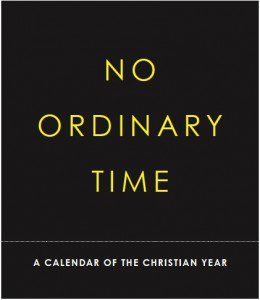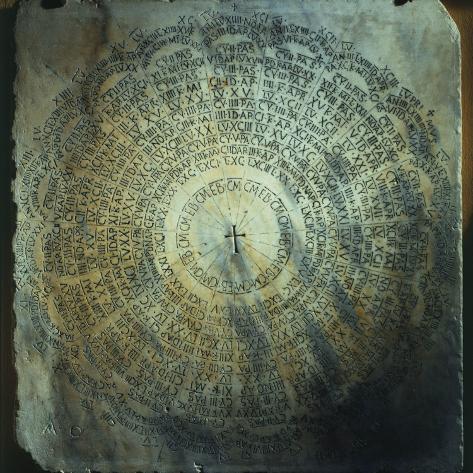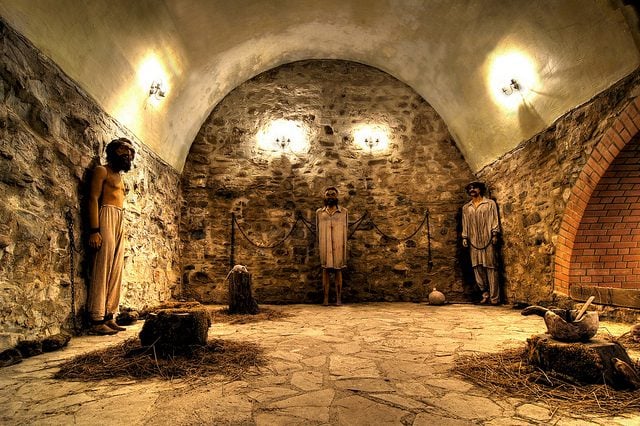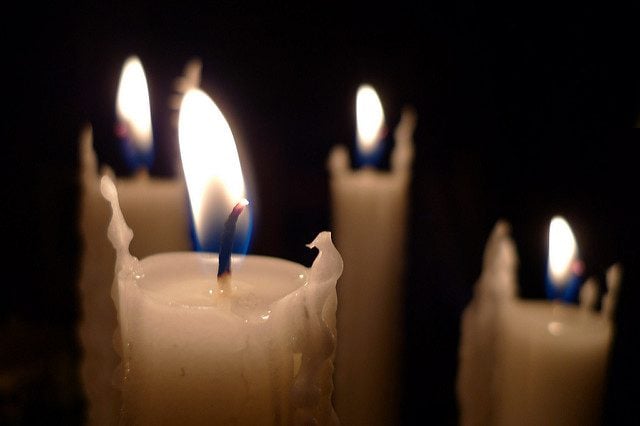 Late last week, I took my two boys grocery shopping, and my observant four-year-old remarked with dismay that all the wonderful Christmas decorations had disappeared from the store. For more than a month, he had been delighted by the festive decorations, which of course, made grocery shopping easier for me. Instead of having him beg for gummy snacks and cookies, we played the Who-Can-Find-The-Christmas-Decorations” game.
Late last week, I took my two boys grocery shopping, and my observant four-year-old remarked with dismay that all the wonderful Christmas decorations had disappeared from the store. For more than a month, he had been delighted by the festive decorations, which of course, made grocery shopping easier for me. Instead of having him beg for gummy snacks and cookies, we played the Who-Can-Find-The-Christmas-Decorations” game.
So, if you happened to be shopping in the same store as me, you would have heard an excited, awe-filled voice repeatedly saying as we shopped, “Christmas-decorations-Christmas-decorations-Christmas-decorations.”
But just a few days after Christmas Day, the decorations had been removed, as if the Grinch sneaked in and stolen the last 9 days of Christmas. I had been reminding my son that we had 12 whole days of Christmas, and he just couldn’t quite understand why a store would get rid of Christmas when it had only just begun!
 Indeed, even today, as most Americans have moved on to New Year’s resolutions and many stores are already stuffing aisles with pink hearts for Valentine’s Day, it can be difficult to remember that Christmas has yet to end. Indeed, there are still four days until the Epiphany this Friday.
Indeed, even today, as most Americans have moved on to New Year’s resolutions and many stores are already stuffing aisles with pink hearts for Valentine’s Day, it can be difficult to remember that Christmas has yet to end. Indeed, there are still four days until the Epiphany this Friday.
That’s nine ladies dancing, ten lords a-leaping, eleven pipers piping and twelve drummers drumming still to go! But let’s be honest. How many of us really ever make it much farther than the five gold rings?
In all seriousness, it got me to reflecting on the differences between our civil calendar and our religious ones, and what each promises. In our society, our calendars have been molded into seasons of consumerism, each bleeding into the next without pause. As soon as the Christmas wrapping paper is discounted, the candy hearts and paper cards for Valentine’s Day begin to appear, followed quickly by St. Patrick’s Day shamrocks and leprechauns, chased by Easter’s bunnies and candies. Then, it’s on to Mother’s Day bouquets, Memorial Day sales, Father’s Day ties, Fourth of July fireworks and hot dogs, back-to-school sales and Labor Day clearances. Halloween begins in September, Thanksgiving in October, Christmas in November.
Our civil, consumer calendar offers us no break in the buying season, no chance to reflect, to pause, to celebrate, to truly linger over a feast. How quickly did many of us take down our Christmas trees? How quickly did we pack up the Nativity? How soon after Christmas Day did we start thinking about our New Year’s resolutions?
I don’t think these are trivial questions nor do I think something as basic as a calendar should be overlooked for how it operates on us. We are busy, time-oriented, calendar-centric people, with our day planners and meticulously crafted schedules packed into smartphones or fancy leather-bound books.
Within this culture, the calendar — time itself — has been manipulated in order to serve consumerism.
Think about that for a moment: Time serves mammon.
And unless we resist the empire’s time and have some sort of disciplined alternative, we will quite easily be caught up in its seductive current.
This is the quiet power and justice of the Christian calendar. It offers us a chance to resist absolute conformity to the timetables of consumerism, to push back against a culture that requires us to find our worth in things, to stand defiantly against a calendar that hurries us past meaningful pauses and refuses to let us rest in peace.
Christmas is not over, I keep reminding my friends (who roll their eyes). Leave up the tree, the decorations, the poinsettias, the Nativity. Slow down. Be in the moment and let Christmas continue to fill you with wonder. Cultivate Christmas. Or better yet, let Christmas cultivate you!
There is a subversiveness to slowing down time that makes us uncomfortable because it forces us not to conform with the norms of consumer society. And difference, in a hegemonic consumer culture, is frowned upon; it creates cracks in a facade through which people might imagine another world, a better world.

In allowing the seasons of our faith to supplant the seasons of our shopping, Christians can begin to reject the wisdom of a consumeristic empire that says time can only serve mammon. It fights against the schedules of monetary time and the measuring of days in coffeespoons. It protests the notion that our months are billing cycles, our weeks meted out in paychecks rather than in meals with our families, memories with our friends, worship with our faith communities.
The Christian calendar offers us an exit from consumeristic world, a path that will help to pull back the satiating veil of consumerism that hides its injustices and abuses to which we have all been contributors.
To celebrate Christmas on Jan. 3, when we are all returning back to work, is a most basic act of civil disobedience, a simple act of justice, a spiritual discipline. To celebrate Christmas when others are rushing into the false hope of a new year is a reminder that our time is precious and should be savored rather than offered for sale. To continue to celebrate Christmas when it is already being forgotten is to begin to wake from the fog of consumerism to the new reality of the birth of Christ and the Reign of God.
To celebrate Christmas today is to begin to squeeze ourselves and our camels through the needle’s eye.
















